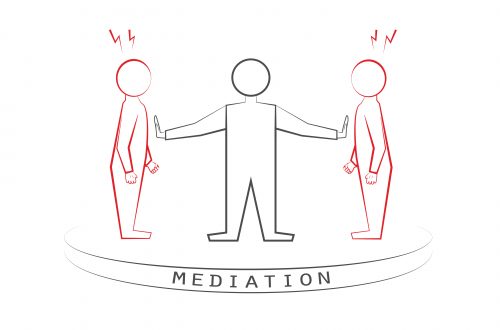Divorce Mediation – What it Really is and Why It Works

Divorce Mediation – What it Really is and Why It Works
Divorce Mediation is an approach to a trial mediation that is affordable and offers a high quality service. Divorce Mediation in five stages helps couples resolve key issues before a long court trial. Divorce Mediation is an alternative dispute settlement procedure, used in the context of a divorce case. A divorce mediator assists couples identify, recognize, discuss, agree, and finally resolve all the issues that require resolving in the divorce. The purpose of mediation is to help couples negotiate more effectively, as well as reach mutually beneficial solutions through the use of a neutral third-party.
No matter what the circumstances are, if you are going through a divorce mediation, one goal is generally on the table: an agreement between the two parties about the terms of the settlement and who will pay for it. In a typical divorce mediation agreement, one party (usually the lawyer or spouse) makes a financial arrangement with the other spouse. This arrangement generally outlines how much each person will pay. The amount is usually based on income and assets. The purpose is to ensure that the divorce mediation agreement is fair to both parties and to avoid the costly cost of a lengthy trial and appeal.
Many people worry about whether they will be able to find a good mediator or whether they will end up with a “one-sided” mediation agreement. In reality, the vast majority of divorces are mediated in a positive manner. Divorce Mediation is a much better option than divorce court, because it ensures a more reasonable settlement than would occur in a court room. This is why many people choose to use divorce mediators, including those with a history of negotiating cases, even if they are not the ideal mediators for resolving their own personal situations.
There are several benefits to using divorce mediation, including the opportunity for quicker settlement, reduced costs, and a more comfortable and friendly environment. The mediator’s role is not to provide legal counsel to either party, but to offer neutral, objective guidance that helps the parties communicate well. Often, attorneys get involved because they want to appear in the case. In mediation, both parties can bring their attorney and the attorney can have his or her client to leave the courtroom. This allows both parties to avoid lengthy and costly court battles, as well as the risk of having a reputation tarnished by taking sides in a case.
Divorce Mediation occurs very quickly, often in a matter of hours, allowing both parties to move forward with their lives while avoiding further stress and the possibility of higher expenses. The first step to a successful mediation process is for both parties to agree to the terms of a settlement, which can usually be done simply by meeting with a mediator. Once both sides have agreed to the terms of a settlement, then the mediation officially begins. Both parties meet with the mediator one-on-one, discussing the terms of a divorce agreement, possible settlements, how any assets will be distributed, child custody and visitation arrangements, and any other issues they feel are important.
Divorce Mediation differs from traditional litigation in a number of ways, including how it is litigated. In divorce mediation, the spouses present their agreement to the other spouse, and the mediator oversees the discussion and communicates them to each party. The mediator does not make decisions or provide legal advice. He or she provides neutral, objective guidance during the course of the mediation that neither party can attend to itself and that helps the parties better understand each other’s needs and opportunities for resolving their differences without resorting to litigation. Divorce Mediation can also be more cost effective than a lengthy litigation process, since the parties can agree to terms in writing, rather than having to litigate the issue in court.
Because the process is usually non-custodial, when you hire a lawyer to represent yourself in a Divorce Mediation, make sure that the lawyer is registered and that he or she has the required licenses and expertise needed to conduct the Divorce Mediation properly. If you choose to represent yourself at the Divorce Mediation, you should not disclose any details of the discussions between you and your spouse. You may discuss what is important to each party and agree upon those details, but you should not tell anyone else what you have discussed. Sharing information about the negotiation or the outcome of the Divorce Mediation with anyone other than your spouse, your lawyer, your children’s attorney, a judge or a third-party mediator could further damage your case or put you in a potentially troublesome situation. Your lawyer will also have the best experience at negotiating a fair settlement and will know what to ask for in order to get you the fairest settlement possible.
Divorce Mediation can often result in a quicker settlement than if you were to go to trial. The process can also save you money and provide you with time to recover from your divorce. Before signing any agreement at the Divorce Mediation, ask your lawyer or your Divorce Mediation coordinator what the advantages and disadvantages are of the Divorce Mediation and whether or not you may want to proceed with a trial.



